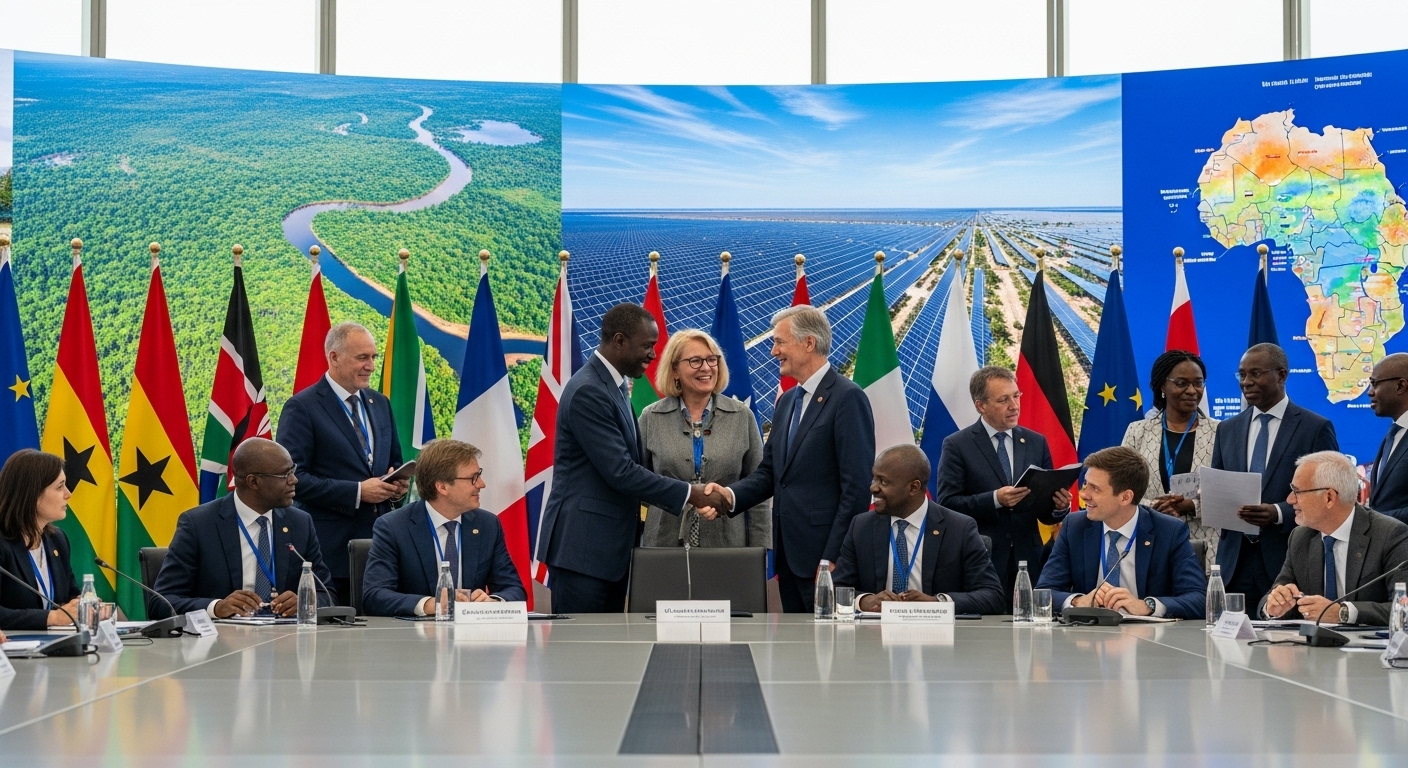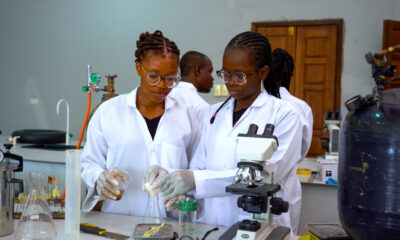Features
Petlong Dakhling: How Important is #COP30 to Africa and Nigeria?

Generated Photo/ Image FX
Every year, when world leaders come together under the United Nations to discuss climate change, the meeting known as the Conference of the Parties (COP) plays a crucial role in shaping global action. The decisions made at COP have far-reaching effects on our daily lives, influencing everything from the fuel we use and the food we grow to the investments that drive our economies.
The story behind COP began more than three decades ago when scientists started warning that human activities, especially burning coal, oil, and gas, were heating the planet. In 1992, at the Earth Summit in Rio de Janeiro, countries adopted the United Nations Framework Convention on Climate Change (UNFCCC). The idea was to bring every nation together to slow down global warming and protect the planet for future generations.
The first meeting of the Parties, known as COP1, took place in Berlin in 1995. Since then, the conference has become the global forum where countries negotiate and cooperate on climate action.
Over the years, key agreements have shaped global climate action. In 1997, the Kyoto Protocol created the first legally binding emission targets for developed countries. Then in 2015 came the Paris Agreement, the most significant climate pact to date. Unlike Kyoto, Paris brought all nations, developed and developing, to one framework. Each country now submits its climate plan, known as a Nationally Determined Contribution (NDC), outlining how it will cut emissions and adapt to a changing climate.
What to expect at COP30 in Brazil
Currently, the world is preparing for COP30, which will take place in Belém, northern Brazil, from 10 to 21 November 2025. Belém was not a random choice. The city lies where the Amazon River meets the Atlantic, opening into the world’s largest rainforest. By hosting COP there, Brazil hopes to draw attention to the vital role of forest protection in tackling climate change.
This year’s COP is being described as an implementation conference, a meeting focused less on new pledges and more on turning promises into action. Countries will be expected to submit updated national climate plans and show how they are cutting emissions in line with global targets.
The discussions will revolve around a few key themes:
- Climate finance: How much money richer nations will commit to help developing countries adapt to droughts, floods, and rising temperatures.
- Loss and damage: Financial and technical support for countries that are already suffering irreversible climate impacts.
- Energy transition: The shift from fossil fuels to cleaner, renewable sources like solar, wind, and bioenergy.
- Forest protection: Especially relevant in Brazil’s Amazon, where deforestation remains a major challenge.
- Global cooperation: Ensuring developing regions, particularly Africa, can grow their economies without worsening emissions.
Brazil also wants to use COP30 to promote a new initiative called the Tropical Forest Forever Facility, a proposed global fund to reward countries that protect their rainforests. If approved, it could channel billions of dollars into conservation and sustainable development projects across tropical nations, including those in Africa.
Why it matters for Nigeria and Africa
Although Africa’s contribution to global emissions is considerably low, the continent bears a disproportionate share of the consequences of climate change. But why should Nigerians care about what’s decided in Brazil? Because outcomes from COP shape national policies, the direction of our economy, the kind of energy we use, and the support countries like ours receive to address climate challenges.
Nigeria is already feeling the weight of climate change, from droughts in the north and floods in the south to unpredictable rainfall and food insecurity. The majority of Nigeria’s forests have also been lost. What is decided at COP30 will influence how much funding is available for countries like ours to adapt and build resilience. For example, if wealthy nations agree to increase climate finance or operationalise new loss and damage mechanisms, it could mean more resources for renewable energy, infrastructure and disaster recovery here at home.
It also affects Nigeria’s economy and future development. The global shift toward cleaner energy means countries that rely heavily on oil exports, like Nigeria, must rethink their growth strategies. Negotiations at COP30 on issues such as carbon markets, biofuels, and just energy transitions will determine how fairly that shift happens and whether it supports countries like ours to diversify and innovate or leaves us behind.
Beyond the technicalities, COP30 is about justice and opportunity. It is about whether Africa’s voice is heard in the room where global climate rules are written. Nigerian participation matters because we need to shape those rules, not just follow them. From policymakers and researchers to young climate advocates, Nigerians have a role to play in making sure our realities and priorities are reflected in global decisions.
If developed nations agree to increase climate funding, it could mean more resources for solar power projects, greener transport, sustainable agriculture, and disaster management in Nigeria. It could also open new pathways for innovation and green jobs for young people.
Each COP shapes the next phase of global cooperation. What happens at COP30 will influence how countries balance growth with responsibility and how the benefits of climate action are shared. It is up to us to stay informed, stay engaged, and make sure the outcomes reflect the realities and priorities of our own communities.























